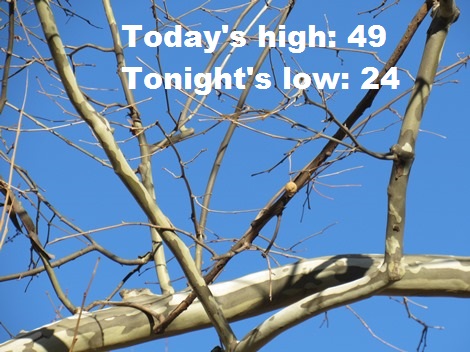Package includes $1,000 voucher for 50,000 students falling behind during pandemic
by Tim Carpenter, Kansas Reflector
Topeka — The SPARK executive board of state officials and business advisers agreed to move ahead Monday with allocation of federal funding for $100 million in commercial building infrastructure projects and $50 million in direct aid to children enduring educational setbacks in the COVID-19 pandemic.
The idea proposed by Lt. Gov. David Toland to the seven-member executive board featured development of grants to businesses and communities for expanding building infrastructure capable of attracting or retaining jobs in Kansas. In addition, Toland said the goal would be to provide a $1,000 voucher to low-income, high-need students particularly affected by loss of educational opportunities due to interruption of school.
In addition, the panel agreed to direct $4 million in state matching funds to assist school districts with installation of high-speed internet services.
“In our listening sessions we heard clear direction from Kansans on needs and opportunities,” Toland said. “We’ve got an imperative to try and act now.”
The package, which is drawn from federal relief funding made available to Kansas, must still be approved by the State Finance Council, which includes House and Senate leaders of both political parties and Democratic Gov. Laura Kelly. As it stands, Kansas has yet to allocate $1.1 billion of the $1.6 billion designated by Congress. In addition to $500 million set aside to bolster the state’s unemployment trust fund, the State Finance Council directed $50 million for bonuses to retain nurses, $30 million for salaries of hard-to-fill state jobs and $27 million to continue coronavirus testing through March 2022.
The proposals were endorsed by Senate President Ty Masterson, House Speaker Ron Ryckman, state Department of Administration secretary DeAngela Burns-Wallace, businessman Jon Rolph and Toland. Opposition among executive board members of SPARK, or Strengthening People and Revitalizing Kansas, was registered by businessmen Greg Orman and Bill Pickert.
Masterson and Ryckman requested additional details on how Kansas would determine recipients of individual learning-loss grants of $1,000 per child. Documents provided by the Kelly administration indicated about 50,000 students would be eligible for a program modeled after similar projects in Idaho and Oklahoma.
Under the proposal, parents would seek to qualify through an online portal and, if eligible, would be able to use the $1,000 to buy educational materials, computers, software, tutoring services or cover other approved educational expenses. The program would be structured to allocate the money on a first-come, first-served basis.
Burns-Wallace said the administrative cost of the educational initiative would be kept low, perhaps improving on the 5% cost incurred in Idaho. She said existing metrics for determining eligibility of Kansas students would be used, including guidelines relied upon by the Kansas Department of Education.
“I’m actually a big supporter of empowering parents,” said Masterson, a Republican from Andover and president of the Kansas Senate. “I think this is a step in that direction.”
Orman and Pickert voted against the proposed grants for commercial construction and the vouchers for needy students. Both said the business development grant idea didn’t include enough detail to properly evaluate.
Under the Kelly administration’s proposal, the Kansas Department of Commerce would review applications for support of speculative building developments, modernization of business park facilities and other infrastructure ideas. A lack of ready-to-lease building spaces in Kansas inhibits the state’s ability to accommodate business opportunities, Toland said.
“I’m a hard no on all of this,” said Orman, who was an independent candidate for governor in 2018, a race won by Kelly. “I’m just shocked we’d come out and say we want to do an economic development program to build empty buildings. The idea that the state is going to somehow renovate a bunch of old buildings for the private sector, in my mind, is cronyism at its best. We’re talking about corporate welfare here.”
Toland, the lieutenant governor as well as secretary of the Kansas Department of Commerce, said there was a shortage in Kansas of ready-to-occupy space for logistics and distribution companies and for advanced manufacturing businesses. He said investing federal funds in targeted ways would help build momentum in the state’s economy.
“We don’t have that space in most places in Kansas,” Toland said. “There is an acute shortage.”
Orman also faulted the recommendation to provide $1,000 to students who lacked the resources or support system to buffer themselves educationally when not at brick-and-mortar schools since the COVID-19 pandemic began in early 2020. He suggested the state should explore funding of summer school programs or special reading initiatives.
He alleged the education piece of the package appeared to be a bid for votes in the 2022 campaign cycle.
“We might as well send an absentee ballot with every $1,000 voucher that goes out,” Orman said. “It feels like we’re buying votes here and not actually focusing on the real problem. I understand the political appeal of sending $1,000 to a bunch of people.”
Pickert, who also voted against the package presented to the SPARK executive committee, said he wanted a comprehensive proposal for the education spending plan. He also said the Kansas idea was vastly bigger than the $7.5 million initiative in Oklahoma and $20 million project in Idaho.
Kansas Reflector stories, www.kansasreflector.com, may be republished online or in print under Creative Commons license CC BY-NC-ND 4.0.
See more at https://kansasreflector.com/2021/12/20/spark-executive-board-earmarks-154-million-for-kansas-economic-development-education/


